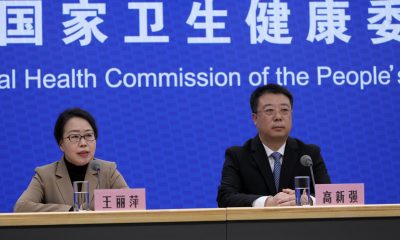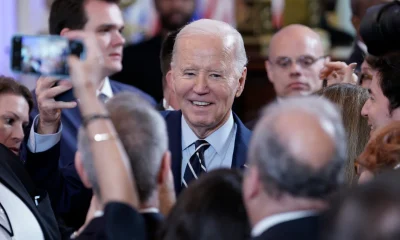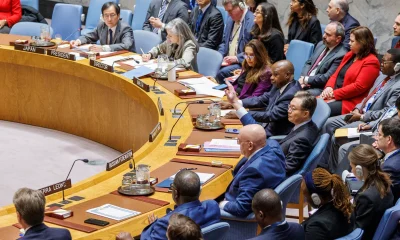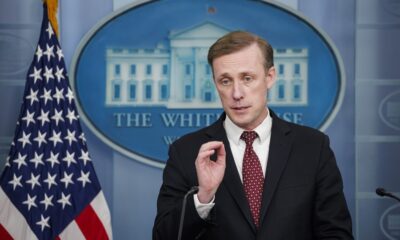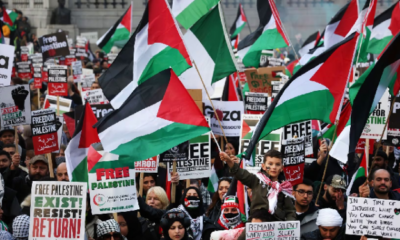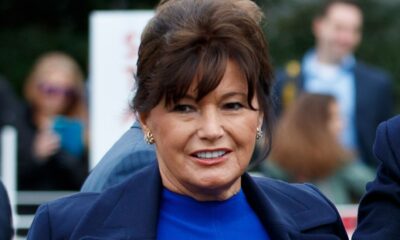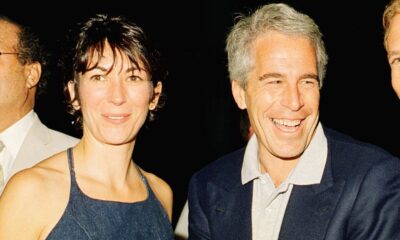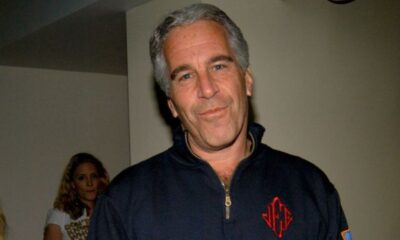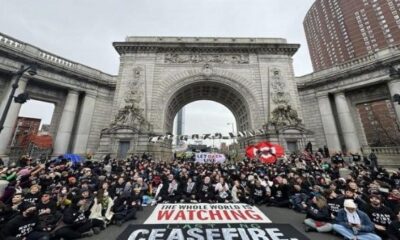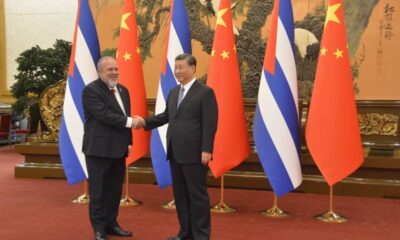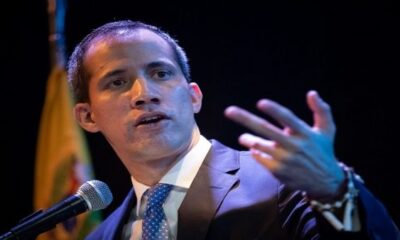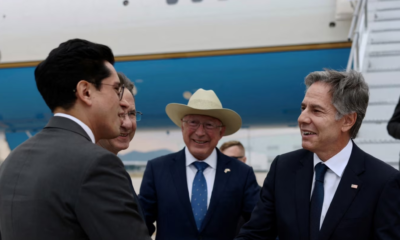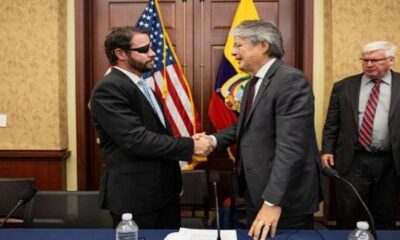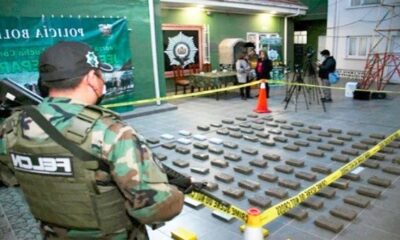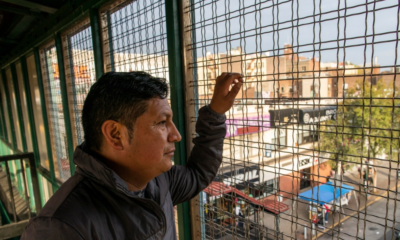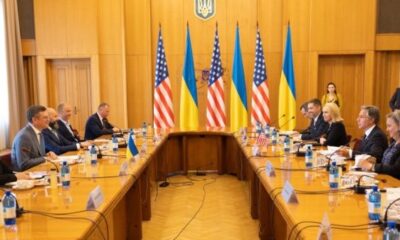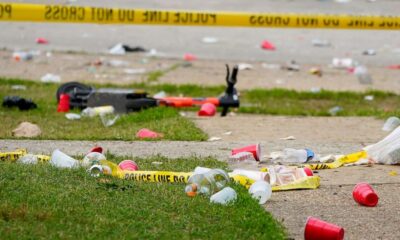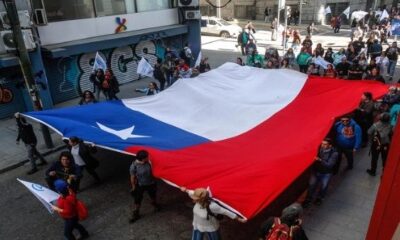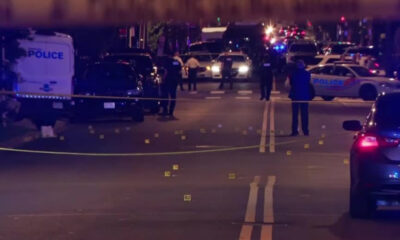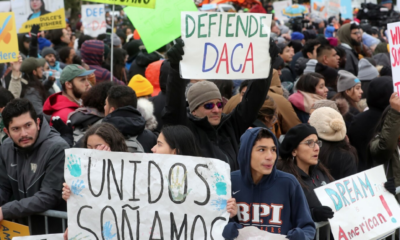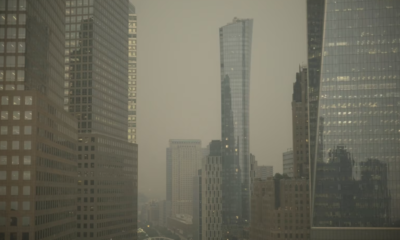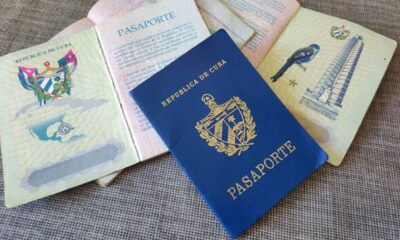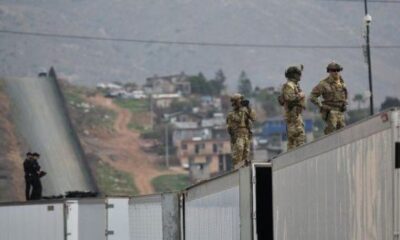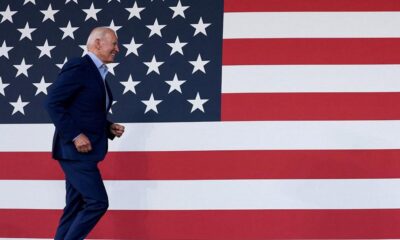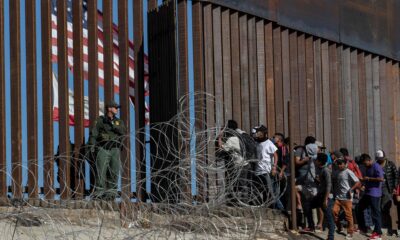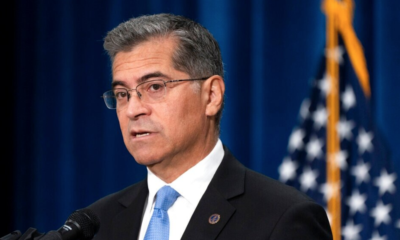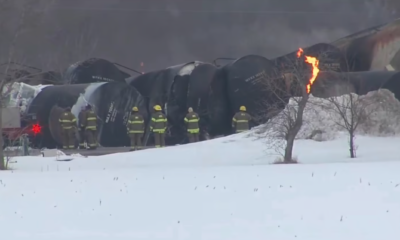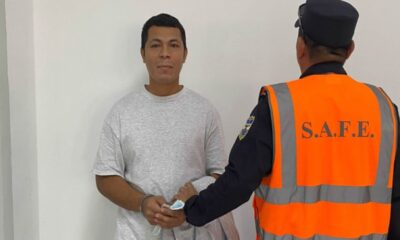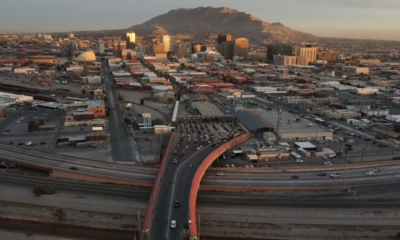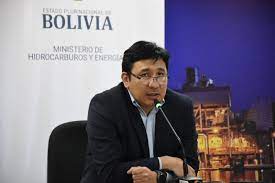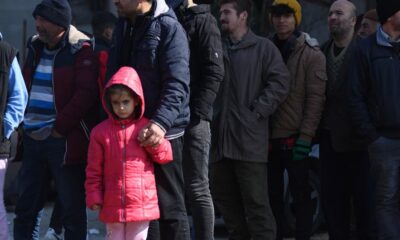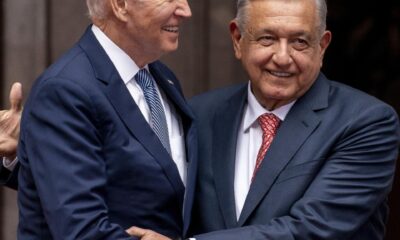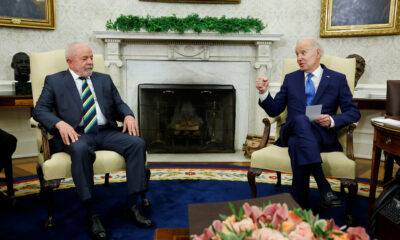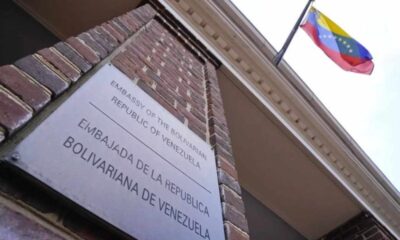International
U.S. Ambassador: China must be honest about COVID’s origins
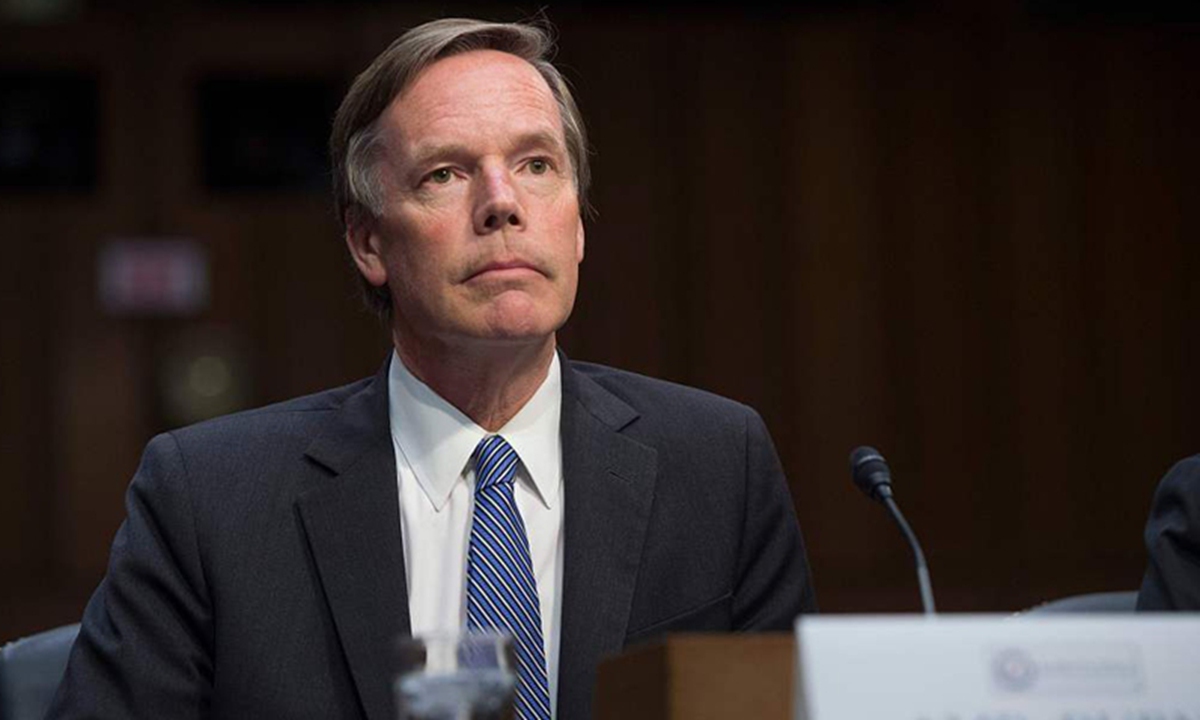
February 28 |
The U.S. ambassador to China says Beijing needs to be more forthcoming about the origins of the COVID-19 pandemic, a day after reports that the U.S. Department of Energy concluded that the outbreak likely began because of a leak at a Chinese lab.
Nicholas Burns said Monday at a US Chamber of Commerce event via video link that China needs to “be more honest about what happened three years ago in Wuhan with the origin of the COVID-19 crisis.” Wuhan is the Chinese city where the first cases of the new coronavirus were reported in December 2019.
His comments come a day after U.S. media reported that the Department of Energy determined that the pandemic likely stemmed from a lab leak in Wuhan.
The department made its judgment in a classified intelligence report provided to the White House and key members of Congress, according to The Wall Street Journal, which first reported the development, citing people who read the report.
The WSJ said the Energy Department’s intelligence agency was now the second U.S. intelligence agency after the FBI to conclude that a leak at a Chinese lab was the likely cause of the pandemic, although U.S. spy agencies remain divided over the origins of the virus.
White House national security spokesman John Kirby echoed that sentiment.
“There has been no definitive conclusion or consensus in the U.S. government on the origins of the COVID-19 pandemic,” Kirby told reporters Monday when asked about the WSJ report.
The Energy Department’s assessment was made with “low confidence,” while the FBI’s conclusion was determined with “moderate confidence,” according to the WSJ. Four other U.S. agencies reportedly determined with “low confidence” that the virus was naturally transmitted through animals, while two other agencies remain undecided.
The reports bring national attention back to the question of what caused the COVID-19 outbreak.
The Energy Department’s conclusion marks a shift from its earlier position that it was undecided about how the virus began. U.S. officials did not disclose what new intelligence prompted the change. The Energy Department’s analysis came from its network of national laboratories, giving it a different perspective than more traditional intelligence assessments.
On Sunday, White House national security adviser Jake Sullivan told CNN that “there are a variety of views in the intelligence community.”
“Some elements of the intelligence community have come to conclusions on one side, some on the other,” he said.
Scientists have also been divided on the issue, with some pointing to the live animal market in Wuhan as the most likely place where the virus emerged, noting that animal-to-human transmission has been the pathway for many previously unknown pathogens. However, other scientists have given credence to the laboratory escape theory, noting that no animal source has been found and that Wuhan is a major site of coronavirus research.
The question of how the virus began has also exacerbated political divisions in the U.S., with Republicans more likely to back the lab leak hypothesis.
Republican Senator Tom Cotton was one of the first high-profile politicians to express the theory that the virus originated in a laboratory, commenting in February 2020, when the prevailing view was that the virus had been transmitted by bats and spread at a food market in Wuhan.
After a growing number of scientists urged serious consideration of both hypotheses, U.S. President Joe Biden ordered an intelligence review of the origins of COVID-19 in May 2021.
An intelligence assessment declassified in October 2021 indicated that both hypotheses were plausible, but that intelligence agencies remained divided over which theory was correct. The report said there was consensus among intelligence agencies that the pandemic was not the result of a Chinese biological weapons program.
China has repeatedly denied that there was a lab leak in Wuhan. It has placed limits on World Health Organization investigations to determine the origin of the virus.
Some of the information in this report came from Reuters.
International
U.S. Senate Rejects Budget, Bringing Government Closer to Shutdown Amid DHS Dispute

The U.S. Senate voted on Thursday against a budget proposal in a move aimed at pressuring changes at the Department of Homeland Security (DHS), following the killing of two civilians during a deployment of immigration agents in Minneapolis.
All Senate Democrats and seven Republican lawmakers voted against the bill, which requires 60 votes to advance, pushing the country closer to a partial government shutdown that would cut funding for several agencies, including the Pentagon and the Department of Health.
The rejection came as Senate leaders and the White House continue negotiations on a separate funding package for DHS that would allow reforms to the agency. Proposed measures include banning Immigration and Customs Enforcement (ICE) agents from wearing face coverings and requiring them to use body-worn cameras during operations.
The vote took place just hours after President Donald Trump said he was “close” to reaching an agreement with Democrats and did not believe the federal government would face another shutdown, following last year’s record stoppage.
“I don’t think the Democrats want a shutdown either, so we’ll work in a bipartisan way to avoid it. Hopefully, there will be no government shutdown. We’re working on that right now,” Trump said during a Cabinet meeting at the White House.
International
Trump Says Putin Agreed to One-Week Halt in Attacks on Ukraine Amid Extreme Cold

U.S. President Donald Trump said on Thursday that he secured a commitment from Russian President Vladimir Putinto halt attacks against Ukraine for one week, citing extreme weather conditions affecting the region.
“Because of the extreme cold (…) I personally asked Putin not to attack Kyiv or other cities and towns for a week. And he agreed. He was very pleasant,” Trump said during a Cabinet meeting broadcast by the White House.
Trump acknowledged that several advisers had questioned the decision to make the call.
“A lot of people told me not to waste the call because they wouldn’t agree. And he accepted. And we’re very happy they did, because they don’t need missiles hitting their towns and cities,” the president said.
According to Trump, Ukrainian authorities reacted with surprise to the announcement but welcomed the possibility of a temporary ceasefire.
“It’s extraordinarily cold, record cold (…) They say they’ve never experienced cold like this,” he added.
Ukrainian President Volodymyr Zelensky later commented on the announcement, expressing hope that the agreement would be honored.
International
Storm Kristin Kills Five in Portugal, Leaves Nearly 500,000 Without Power

Storm Kristin, which battered Portugal with heavy rain and strong winds early Wednesday, has left at least five people dead, while nearly half a million residents remained without electricity as of Thursday, according to updated figures from authorities.
The revised death toll was confirmed to AFP by a spokesperson for the National Emergency and Civil Protection Authority (ANPEC). On Wednesday, the agency had reported four fatalities.
Meanwhile, E-Redes, the country’s electricity distribution network operator, said that around 450,000 customers were still without power, particularly in central Portugal.
Emergency services responded to approximately 1,500 incidents between midnight and 8:00 a.m. local time on Wednesday, as the storm caused widespread disruptions.
The Portuguese government described Kristin as an “extreme weather event” that inflicted significant damage across several regions of the country. At the height of the storm, as many as 850,000 households and institutions lost electricity during the early hours of Wednesday.
Several municipalities ordered the closure of schools, many of which remained shut on Thursday due to ongoing adverse conditions.
Ricardo Costa, regional deputy commander of the Leiria Fire Brigade, said residents continue to seek assistance as rainfall persists.
“Even though the rain is not extremely intense, it is causing extensive damage to homes,” he noted.
In Figueira da Foz, a coastal city in central Portugal, strong winds toppled a giant Ferris wheel, underscoring the severity of the storm.
-

 Central America4 days ago
Central America4 days agoGuatemala seizes over a ton of cocaine hidden in flour at Pacific port
-

 International5 days ago
International5 days agoDelcy Rodríguez seeks political agreements after Maduro’s ouster
-

 International4 days ago
International4 days agoHistoric snowstorm paralyzes Toronto after 60 centimeters of snow
-

 Central America3 days ago
Central America3 days agoGuatemala Police Arrest Prison Guard Caught in the Act of Extortion
-

 Central America3 days ago
Central America3 days agoHonduras swears in conservative president Asfura after disputed election
-

 Central America3 days ago
Central America3 days agoBukele leads public trust rankings as UCA survey highlights gains in security
-

 International5 days ago
International5 days agoFederal immigration agents kill man in Minneapolis, sparking protests and outrage
-

 International4 days ago
International4 days agoSpain’s irregular migrant population rises to 840,000, study finds
-

 International2 days ago
International2 days agoFootball Fan Killed in Clashes After Colombian League Match
-

 International3 days ago
International3 days agoWinter Storm Fern Leaves 30 Dead and Over One Million Without Power Across the U.S.
-

 Central America2 days ago
Central America2 days agoGuatemala President Says Starlink Terminal Found Inside Prison
-

 Sin categoría3 days ago
Sin categoría3 days agoEight Killed in Series of Armed Attacks in Ecuador’s Manabí Province
-

 International3 days ago
International3 days agoDoomsday clock moves to 85 seconds before midnight amid rising global risks
-

 International3 days ago
International3 days agoSpain approves plan to regularize up to 500,000 migrants in Historic Shift
-

 International2 days ago
International2 days agoMissing Spanish Sailor Rescued After 11 Days Adrift in Mediterranean
-

 International2 days ago
International2 days agoRubio Says U.S. Could Participate in Follow-Up Russia-Ukraine Talks
-

 Sin categoría3 days ago
Sin categoría3 days agoEl Salvador Launches Fourth Year of Ocean Mission to Protect Marine Ecosystems
-

 International4 days ago
International4 days agoRights group says nearly 6,000 killed in Iran protest crackdown
-

 International4 days ago
International4 days agoVenezuela frees at least 80 political prisoners, NGO says
-

 International4 days ago
International4 days agoEU launches new probe into X over AI-generated fake nude images
-

 International13 hours ago
International13 hours agoU.S. Senate Rejects Budget, Bringing Government Closer to Shutdown Amid DHS Dispute
-

 International4 days ago
International4 days agoSevere winter storm grips U.S., leaves multiple dead as extreme cold persists
-

 International4 days ago
International4 days agoFrance debates ban on social media for children under 15
-

 International13 hours ago
International13 hours agoStorm Kristin Kills Five in Portugal, Leaves Nearly 500,000 Without Power
-

 International13 hours ago
International13 hours agoTrump Says Putin Agreed to One-Week Halt in Attacks on Ukraine Amid Extreme Cold
-

 International13 hours ago
International13 hours agoMan Arrested After Vehicle Crashes Into Jewish Institution in Brooklyn



























